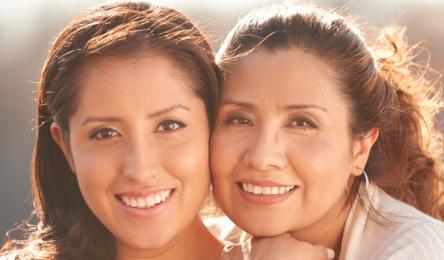
During this year’s National Hispanic Heritage Month (September 15-October 15), we hope you will join the Basser Center’s LATINO & BRCA initiative in celebrating and supporting Latino communities to learn about their family history and hereditary cancer risks.
If you are a healthcare provider and serve Latino patients and families, here are some helpful hereditary cancer resources that you should know about.
The Basser Center’s LATINO & BRCA Educational Materials in Spanish
BRCA Fact Sheet
Find general information about BRCA genetic mutations and risk factors for BRCA-related cancer summarized in this one-page downloadable document. Also check out our Men and BRCA Fact Sheet, which aims to dispel common myths about men’s risks for hereditary cancer.
Collect Your Family History Fillable Form
This tool will help patients begin a conversation with their family and collect information about cancer in their family. It can be printed out or completed digitally.
Mastectomy Surgery Advice Checklist
Members of the Basser Center Leadership Council and Young Leadership Council understand how helpful it is to those preparing for breast surgery to hear first-hand from those who have already gone through it. They’ve compiled their advice and suggestions in this useful checklist.
The above fact sheets are also available in English.
Directory of Spanish-speaking Genetics Providers
Providers and patients now also have greater access to genetic counseling services for individuals who speak Spanish with this directory, which includes 22 providers from around the country.
We also need your help reaching additional communities with these resources! We’ve launched the LATINO & BRCA Poster Campaign to raise awareness, provide resources and offer support to Latino communities about BRCA genetic mutations in men and women. Our poster campaign toolkit contains the educational materials mentioned above in addition to a 13” by 17” outreach poster. You can have a real impact on increasing awareness of hereditary cancer risk and genetic testing, which are low in Latino communities, by participating in this outreach poster campaign. Find out how to request your poster campaign toolkit at basser.org/latinobrca.
Finally, consider attending the ÁRBOLES Familiares (Assessing Risk of Breast Cancer through Outreach to Latinas with Education and Support) Training Program, a 16-week course that aims to educate bilingual community health workers, educators, and patient navigators working with Latina women in the community.